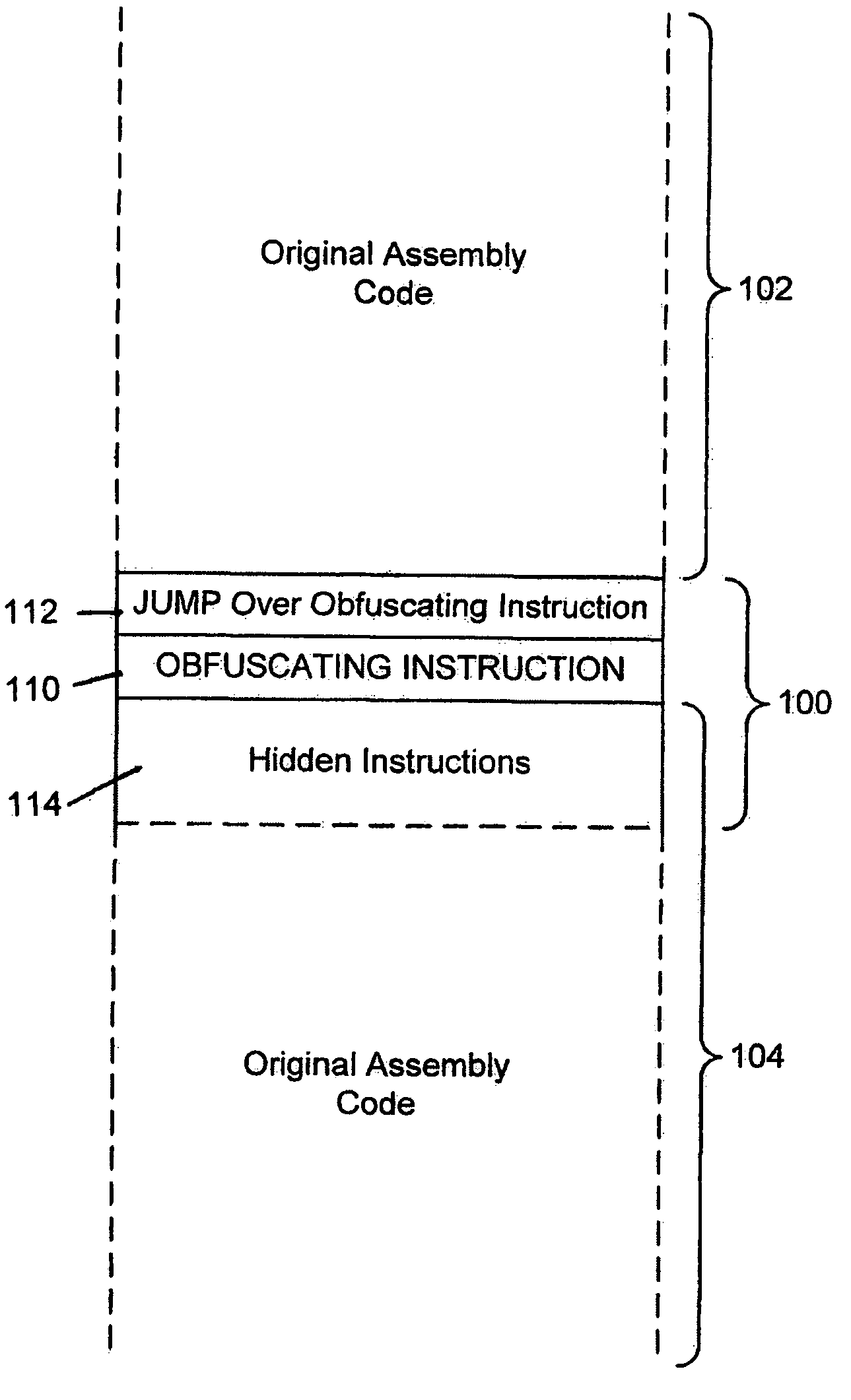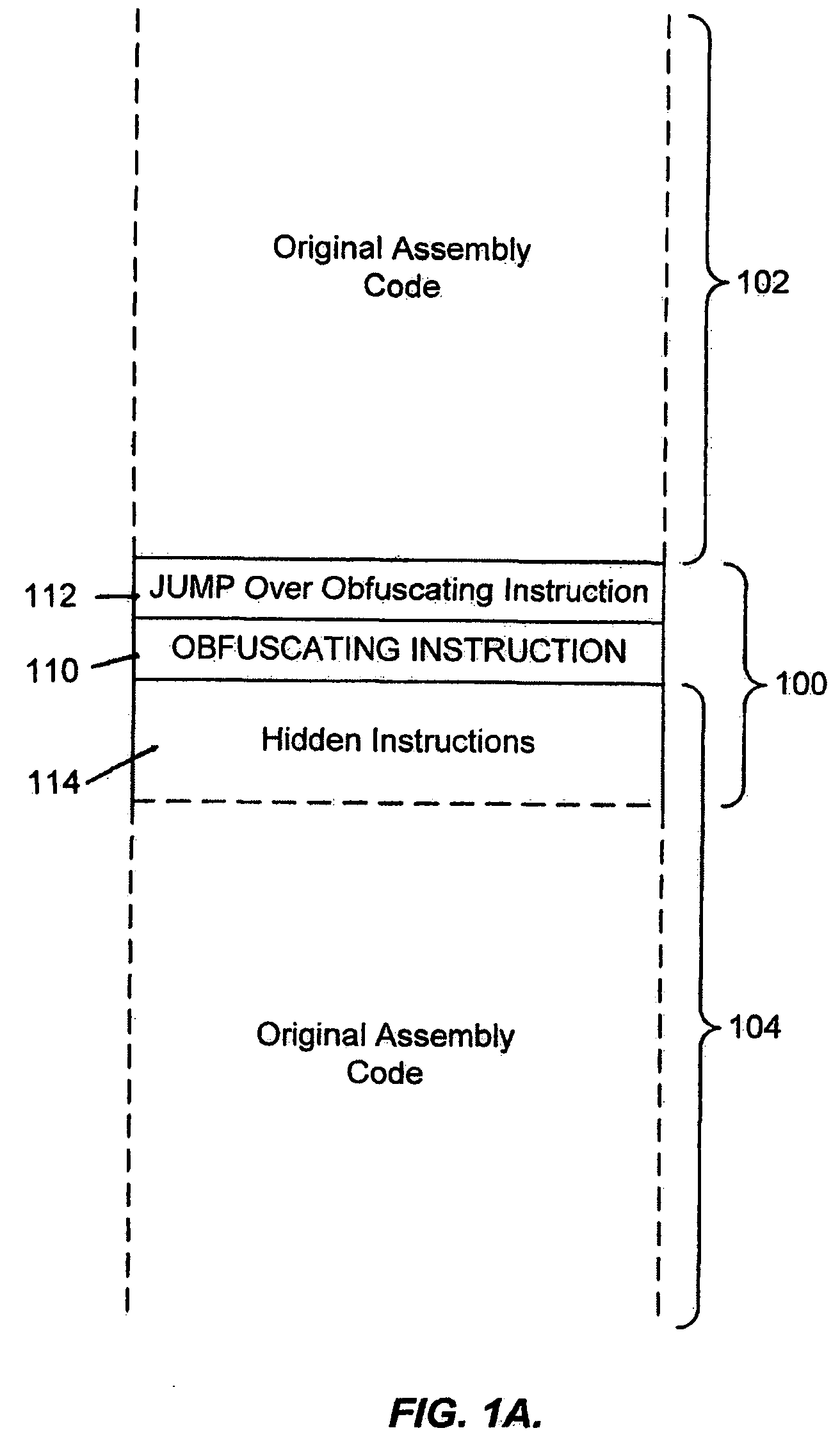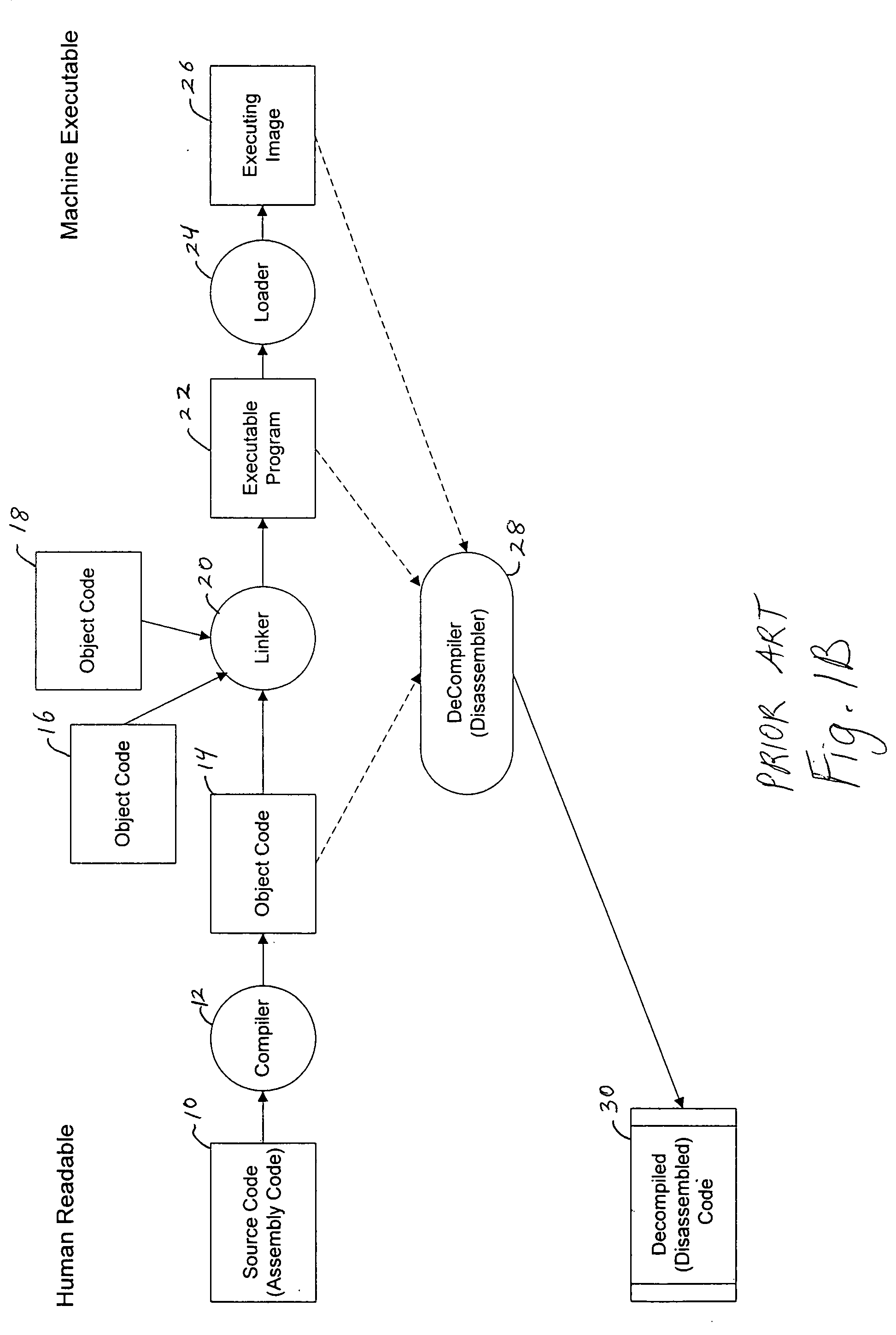System for obfuscating computer code upon disassembly
a computer code and disassembly technology, applied in the field of computer software, can solve the problems of many forms of software distributed, unreadable versions of source code, and tools that exist to decompile or disassemble source code, and achieve the effect of preventing the disassembly of computer cod
- Summary
- Abstract
- Description
- Claims
- Application Information
AI Technical Summary
Benefits of technology
Problems solved by technology
Method used
Image
Examples
Embodiment Construction
[0016]FIG. 1A illustrates software instructions of the present invention.
[0017] In FIG. 1A, instructions at 100 illustrate the concept of code obfuscation. Such instructions are included within the body of an assembly language program. A larger portion of the program is illustrated by preceding assembly code 102 and succeeding assembly code 104. Note that the obfuscating instruction, and associated instructions, can be inserted more than once within the program.
[0018] The obfuscating instruction, and associated instructions, include obfuscating instruction 110, jump instruction 112 and hidden code 114. During execution of the assembly code, the assembly program operates as intended by the original programmer until jump instruction 112 is executed. When jump instruction 112 is executed then obfuscating instruction 110 is skipped and execution proceeds at hidden instructions 114. In other words, obfuscating instruction 110 is never executed. Hidden instructions 114 are part of the i...
PUM
 Login to View More
Login to View More Abstract
Description
Claims
Application Information
 Login to View More
Login to View More - R&D
- Intellectual Property
- Life Sciences
- Materials
- Tech Scout
- Unparalleled Data Quality
- Higher Quality Content
- 60% Fewer Hallucinations
Browse by: Latest US Patents, China's latest patents, Technical Efficacy Thesaurus, Application Domain, Technology Topic, Popular Technical Reports.
© 2025 PatSnap. All rights reserved.Legal|Privacy policy|Modern Slavery Act Transparency Statement|Sitemap|About US| Contact US: help@patsnap.com



